Macpod 100-DT Tablet 10's
MRP ₹146.5
(Inclusive of all Taxes)
₹22.0 Cashback (15%)
Provide Delivery Location
Online payment accepted
 Prescription drug
Prescription drugWhats That
Composition :
Manufacturer/Marketer :
Consume Type :
Expires on or after :
Return Policy :
About Macpod 100-DT Tablet
Macpod 100-DT Tablet belongs to the group of cephalosporin antibiotics used to treat a wide range of bacterial infections of the ear, nose, throat, lower respiratory tract, urinary tract, skin, and soft tissue. Bacterial infections are caused due to the multiplication of harmful bacteria inside or on the body. Macpod 100-DT Tablet does not work against infections caused by the virus, including cold and flu.
Macpod 100-DT Tablet contains 'Cefpodoxime', which is a broad-spectrum antibiotic effective against both gram-positive and gram-negative bacteria. Macpod 100-DT Tablet works by preventing the formation of bacterial cell covering (cell wall), which is necessary for their survival. Thereby, Macpod 100-DT Tablet kills the bacteria and helps in treating and preventing the spread of bacterial infections.
In some cases, Macpod 100-DT Tablet may cause side effects such as nausea, vomiting, diarrhoea (watery or loose stool), abdominal pain, loss of appetite, bloating, skin rash and itching. Most of these side effects do not require medical attention and will resolve gradually over time. However, you are advised to talk to your doctor if you experience these side effects persistently.
Talk to your doctor if you have/had inflammation in the bowel, kidney or liver problems. Consult your doctor if you are pregnant or breastfeeding. Macpod 100-DT Tablet may cause dizziness, so be cautious while driving. Avoid alcohol consumption to prevent unpleasant side effects. Inform your doctor about all the medicines you are taking and your health condition to rule out any unpleasant side effects.
Uses of Macpod 100-DT Tablet
Directions for Use
Key Benefits
Macpod 100-DT Tablet belongs to the group of antibiotic medicines called 'cephalosporins' used to treat a wide range of bacterial infections of the ear, nose, throat, lower respiratory tract, urinary tract, skin, and soft tissue. Macpod 100-DT Tablet is a broad-spectrum antibiotic that is effective against gram-positive and gram-negative bacteria, aerobic and some anaerobic bacteria. Macpod 100-DT Tablet works by preventing the formation of bacterial cell covering, which is necessary for their survival. Thereby, kills the bacteria and helps in treating and preventing the spread of infections.
Storage
- Inform Your Doctor: Notify your doctor immediately about your diarrhoea symptoms. This allows them to adjust your medication or provide guidance on managing side effects.
- Stay Hydrated: Drink plenty of fluids to replace lost water and electrolytes. Choose water, clear broth, and electrolyte-rich drinks. Avoid carbonated or caffeinated beverages to effectively rehydrate your body.
- Follow a Bland Diet: Eat easy-to-digest foods to help firm up your stool and settle your stomach. Try incorporating bananas, rice, applesauce, toast, plain crackers, and boiled vegetables into your diet.
- Avoid Trigger Foods: Steer clear of foods that can worsen diarrhoea, such as spicy, fatty, or greasy foods, high-fibre foods, and dairy products (especially if you're lactose intolerant).
- Practice Good Hygiene: Maintain good hygiene to prevent the spread of infection. To stay healthy, wash your hands frequently, clean and disinfect surfaces regularly, and avoid exchanging personal belongings with others.
- Take Anti-Diarrheal Medications: If your doctor advises, anti-diarrheal medications such as loperamide might help manage diarrhoea symptoms. Always follow your doctor's directions.
- Keep track of your diarrhoea symptoms. If they don't get better or worse or are accompanied by severe stomach pain, blood, or dehydration signs (like extreme thirst or dark urine), seek medical help.
- Inform your doctor about the nausea and discuss possible alternatives to the medication or adjustments to the dosage.
- Divide your daily food intake into smaller, more frequent meals to reduce nausea.
- Opt for bland, easily digestible foods like crackers, toast, plain rice, bananas, and applesauce.
- Avoid certain foods that can trigger nausea, such as fatty, greasy, spicy, and smelly foods.
- Drink plenty of fluids, such as water, clear broth, or electrolyte-rich beverages like coconut water or sports drinks.
- Use ginger (tea, ale, or candies) to help relieve nausea.
- Get adequate rest and also avoid strenuous activities that can worsen nausea.
- Talk to your doctor about taking anti-nausea medication if your nausea is severe.
- Record when your nausea occurs, what triggers it, and what provides relief to help you identify patterns and manage your symptoms more effectively.
- If you experience symptoms like itching, burning, redness, or discharge after taking medication, consult your doctor immediately and share your symptoms, medication regimen, and medical history.
- Your doctor will assess your medication regimen to determine if it's contributing to the moniliasis and identify the best course of action to manage your condition.
- Your doctor may prescribe antifungal medications or recommend other treatments to help clear up the infection. They may also suggest self-care measures to help manage symptoms and prevent future infections.
- If your condition doesn't improve or persists, consult your doctor and report it. Your doctor will assess your progress, adjust your treatment plan, and provide advice to ensure the best outcome.
- Inflammation of Vagina needs immediate attention and cannot be ignored.
- Get a physical examination and prevent wearing clothes that can hold heat and moisture.
- Avoid using vaginal sprays or perfumed soaps that increase itching and irritation.
- Follow your doctor's instructions, and rest well with proper medication.
- Take a balanced diet and get regular screenings to reduce inflammation.
- Drink water or other clear fluids.
- To prevent worsening of pain, limit intake of tea, coffee, or alcohol.
- Include bland foods like rice, toast, crackers, and rice in your diet.
- Avoid lying down immediately after eating as it may cause indigestion or heartburn.
- Avoid acidic and spicy food as it may cause indigestion.
- Hydrate your body: Drink enough water to prevent dehydration and headaches.
- Calm Your Mind: Deep breathing and meditation can help you relax and relieve stress.
- Rest and Recharge: Sleep for 7-8 hours to reduce headache triggers.
- Take rest: lie down in a quiet, dark environment.
- Cold or warm compresses can help reduce tension.
- Stay Upright: Maintain good posture to keep symptoms from getting worse.
- To treat headaches naturally, try acupuncture or massage therapy.
- Over-the-counter pain relievers include acetaminophen and ibuprofen.
- Prescription Assistance: Speak with your doctor about more substantial drug alternatives.
- Severe Headaches: Seek emergency medical assistance for sudden, severe headaches.
- Frequent Headaches: If you get reoccurring headaches, consult your doctor.
- Headaches with Symptoms: Seek medical attention if your headaches include fever, disorientation, or weakness.
- Eat fiber-rich foods like broccoli, cauliflower, leafy greens, and Brussels sprouts.
- Limit sugar and refined carbs like avoid sugary drinks, white bread, and processed foods.
- Choose lean protein sources like chicken, fish, and tofu.
- Choose low-sugar fruits like berries, citrus fruits, and apples in moderation.
- Maintain good hygiene and keep affected areas clean and dry.
- Wear breathable clothing to reduce moisture.
- Consider natural antifungal agents like coconut oil, tea tree oil, and garlic (consult a healthcare professional before use).
Drug Warnings
Do not take Macpod 100-DT Tablet if you are allergic to cefpodoxime or any antibiotics. Before taking Macpod 100-DT Tablet , let your doctor know if you have/had inflammation in bowel, kidney or liver problems. Consult a doctor if you are pregnant or breastfeeding. Avoid alcohol consumption while taking Macpod 100-DT Tablet to prevent unpleasant side effects. Macpod 100-DT Tablet may cause dizziness, so be cautious while driving.
Drug-Drug Interactions
Drug-Drug Interactions
Login/Sign Up
Co-administration of Macpod 100-DT Tablet with Heparin may enhance the levels or effects of heparin by anticoagulation (preventing blood from clotting).
How to manage the interaction:
Although there is an interaction, Macpod 100-DT Tablet can be taken with Heparin if prescribed by the doctor. Do not stop using any medications without a doctor's advice. Do not discontinue the medication without consulting a doctor.
Co-administration of Macpod 100-DT Tablet with the Cholera vaccine may reduce the effectiveness of the vaccine.
How to manage the interaction:
Talk to your doctor before receiving the Cholera vaccine if you are currently being treated with Macpod 100-DT Tablet or have been treated within the last 14 days. To ensure adequate vaccine response, you should not receive cholera vaccine until at least 14 days after you complete your antibiotic therapy. Do not discontinue the medication without consulting a doctor.
Drug-Food Interactions
Drug-Food Interactions
Login/Sign Up
Diet & Lifestyle Advise
- Antibiotics can alter the useful bacteria in the stomach, which help in digestion. Therefore, you are advised to take foods rich in probiotics, such as yoghurt/curd, kefir, sauerkraut, tempeh, kimchi, miso, kombucha, buttermilk, natto and cheese.
- Eat fibre-rich food like whole grains, beans, lentils, berries, broccoli, peas and bananas.
- Avoid consumption of alcohol and usage of tobacco.
Side Effects of Macpod 100-DT Tablet
- Diarrhoea (loose or watery stool)
- Nausea
- Vomiting
- Abdominal pain
- Loss of appetite
- Bloating
Habit Forming
Therapeutic Class
All Substitutes & Brand Comparisons
RX
Not for online saleAcclipod-100 mg DT Tablet 10's
Acclimate Life Sciences
₹84
(₹7.56 per unit)
42% CHEAPERRX
Not for online saleKefpod 100 mg Tablet 10's
Glenmark Pharmaceuticals Ltd
₹125.5
(₹11.3 per unit)
14% CHEAPERRX
Not for online saleDoxcef 100 Tablet 10's
Lupin Ltd
₹127
(₹11.44 per unit)
13% CHEAPER
Author Details
We provide you with authentic, trustworthy and relevant information
Drug-Diseases Interactions
Drug-Diseases Interactions
Login/Sign Up
Almost all antibacterial medications have been associated to reports of Clostridioides difficile-associated diarrhoea (CDAD), formerly known as pseudomembranous colitis. It can vary from mild diarrhoea to deadly colitis. Clindamycin and lincomycin are two of the most frequent offenders.
How to manage the interaction:
Antibiotics may cause Clostridioides difficile-associated diarrhoea (CDAD), which may range from mild diarrhoea to fatal colitis. Appropriate fluid and electrolyte management, protein supplementation, antibacterial treatment of C difficile, and surgical evaluation is advised.
The kidneys remove the majority of beta-lactam antibiotics as unaltered drugs and, in certain situations, as metabolites as well. In individuals with poor renal function, the blood concentrations of beta-lactam antibiotics and their metabolites may rise and their half-lives may be prolonged. According to the particular product package labelling, dosage modifications may be required. These alterations should be based on the severity of the infection as well as the degree of renal impairment. Renal function tests should be carried out on a regular basis during extended and/or high-dose therapy since these medicines have occasionally been linked to nephrotoxicity and changes in renal function.
How to manage the interaction:
The serum concentration may be increased in patients with impaired kidney function. Dose adjustment may be necessary for patients with kidney dysfunction. Regular renal function tests are advised.
Certain cephalosporins have been associated with cases of hepatitis. There has also been a brief increase in the levels of AST, ALT, and alkaline phosphatase. Patients with hepatic problems should be treated with caution and under close observation when using these medications.
How to manage the interaction:
Caution and monitoring is recommended in patients with liver disorders.
It has been suggested that cephalosporins can cause seizures. In particular in patients with a history of epilepsy and/or where prescribed doses of cephalosporins were exceeded because of renal impairment, cephalosporins have been associated with nonconvulsive status epilepticus (NCSE), encephalopathy, coma, asterixis, neuromuscular excitability, and myoclonia. Depending on the creatinine clearance, change the dosage. In individuals with known seizure disorders, anticonvulsant medication should be maintained. Patients should get a neurological exam to see if medication should be stopped if CNS side effects like seizures happen.
How to manage the interaction:
Cephalosporin antibiotics may trigger seizures. Dose adjustment may be needed.
FAQs
Drug-Drug Interactions Checker List
- FUROSEMIDE
- WARFARIN
- CALCIUM+VITAMIN D3
- SODIUM BICARBONATE
- ALUMINIUM HYDROXIDE
- MAGNESIUM HYDROXIDE
- CIMETIDINE
- RANITIDINE
- LORATADINE
- PROBENECID
Special Advise
- If CDAD (clostridium difficile-associated diarrhoea) is confirmed, then appropriate fluid and electrolyte management, protein supplementation, antibiotic treatment of C. difficile, and surgical evaluation should be instituted as clinically indicated.
Disease/Condition Glossary
Bacterial infection: A bacterial infection is a condition in which harmful bacteria enter, multiply, and infect the body. Harmful bacteria produce chemicals known as toxins, which can damage tissue and cause sickness. They can target any body part and multiply very quickly. Symptoms include fever, chills, and fatigue. Anyone can become infected with a bacterial infection. But, people with a weak immune system or taking immunosuppressive medicines are more prone to bacterial infection.

Have a query?
Alcohol
Safe if prescribed
Avoid consuming alcohol while taking Macpod 100-DT Tablet as it might cause increased dizziness.
Pregnancy
Consult your doctor
Macpod 100-DT Tablet belongs to pregnancy category B. Please consult your doctor if you are pregnant; your doctor will prescribe Macpod 100-DT Tablet only if the benefits outweigh the risks.
Breast Feeding
Consult your doctor
Macpod 100-DT Tablet passes into breast milk. Please consult your doctor if you are breastfeeding.
Driving
Safe if prescribed
Macpod 100-DT Tablet may cause dizziness, do not drive or operate heavy machinery if you feel dizzy.
Liver
Consult your doctor
Dose adjustment may be needed. Please consult your doctor if you have any concerns regarding this or if you have liver impairment/liver disease.
Kidney
Consult your doctor
Dose adjustment may be needed. Please consult your doctor if you have any concerns regarding this or if you have kidney impairment/kidney disease.
Children
Safe if prescribed
Macpod 100-DT Tablet is safe for children if prescribed by the doctor. However, the use of Macpod 100-DT Tablet is not recommended for children below 2 months as safety and efficacy have not been established.


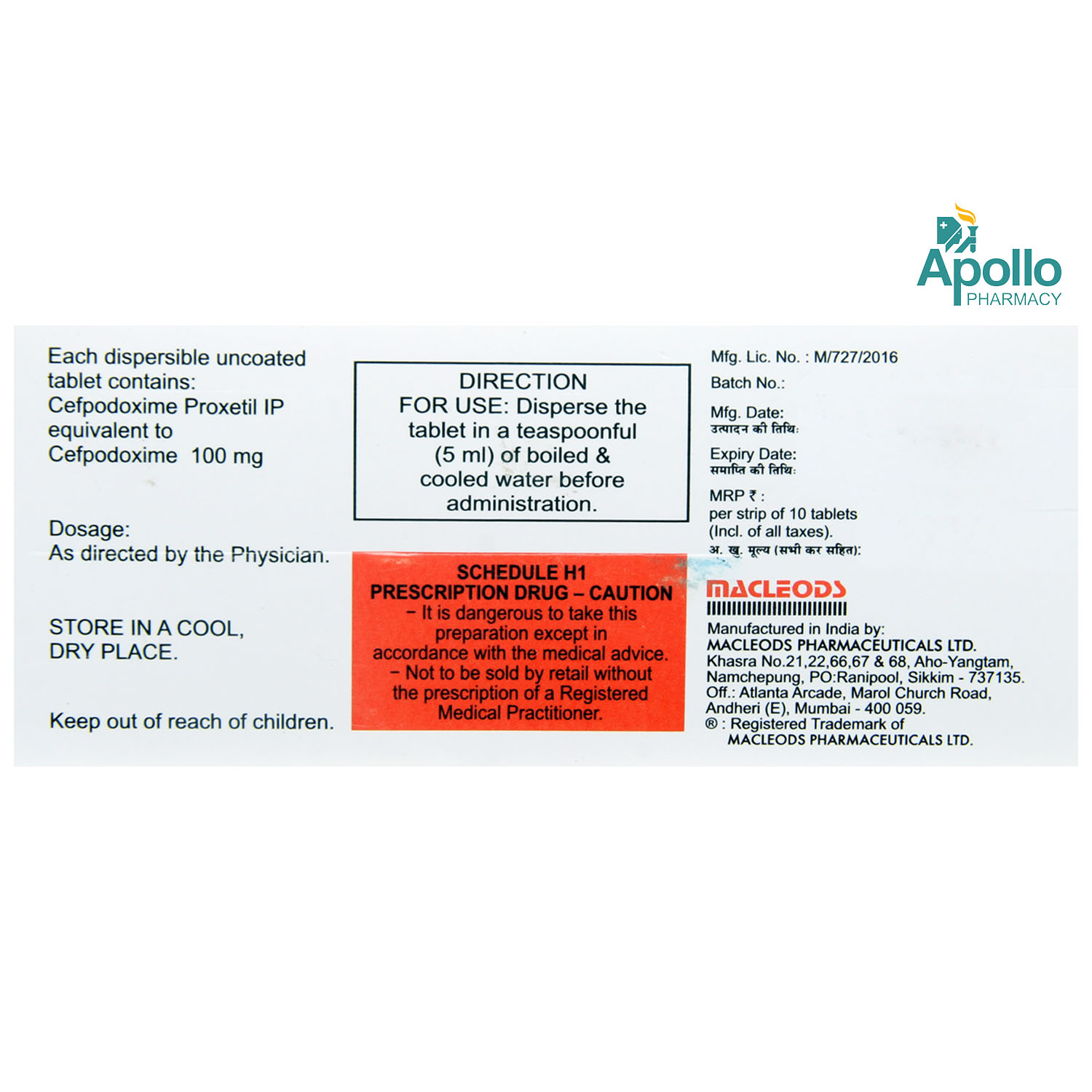
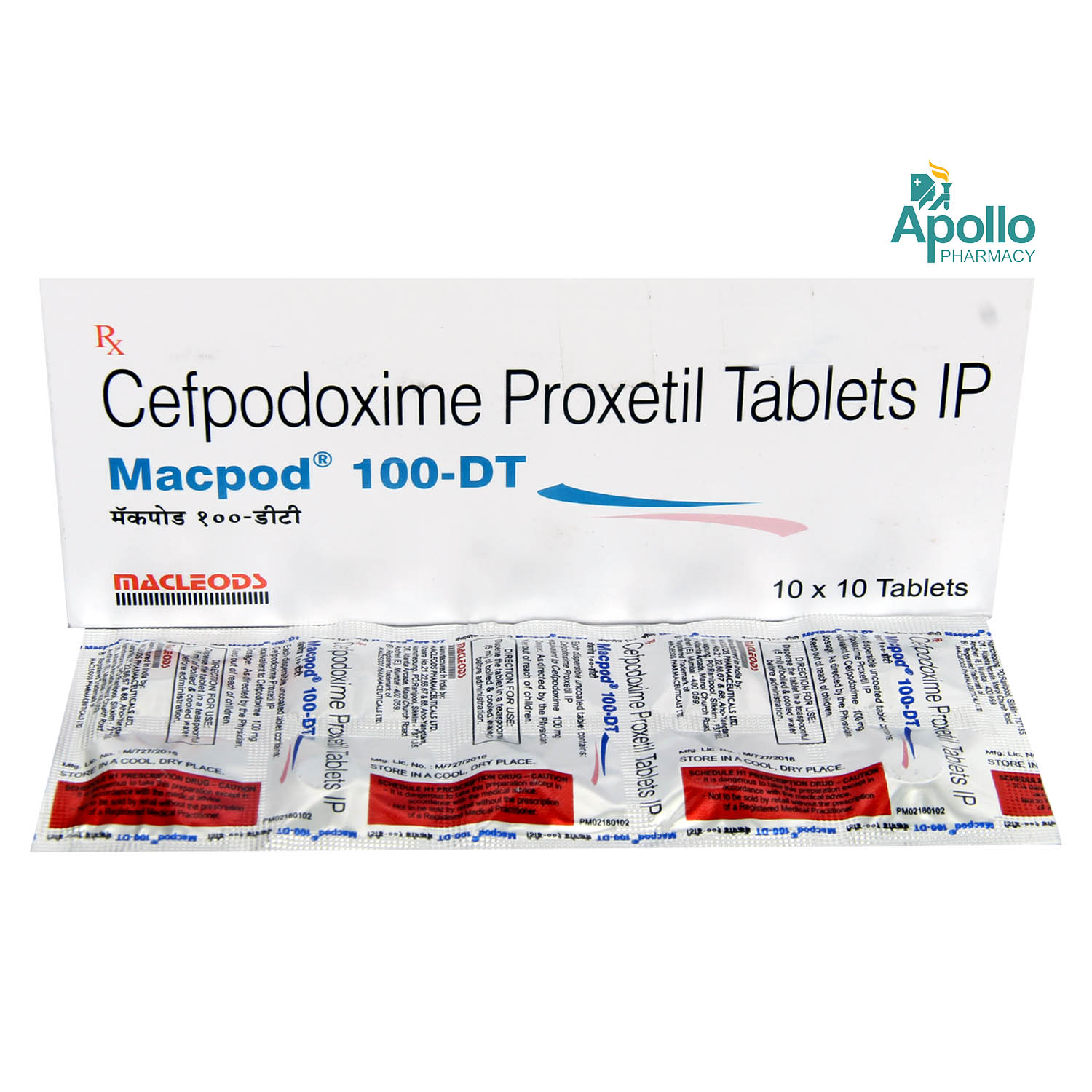





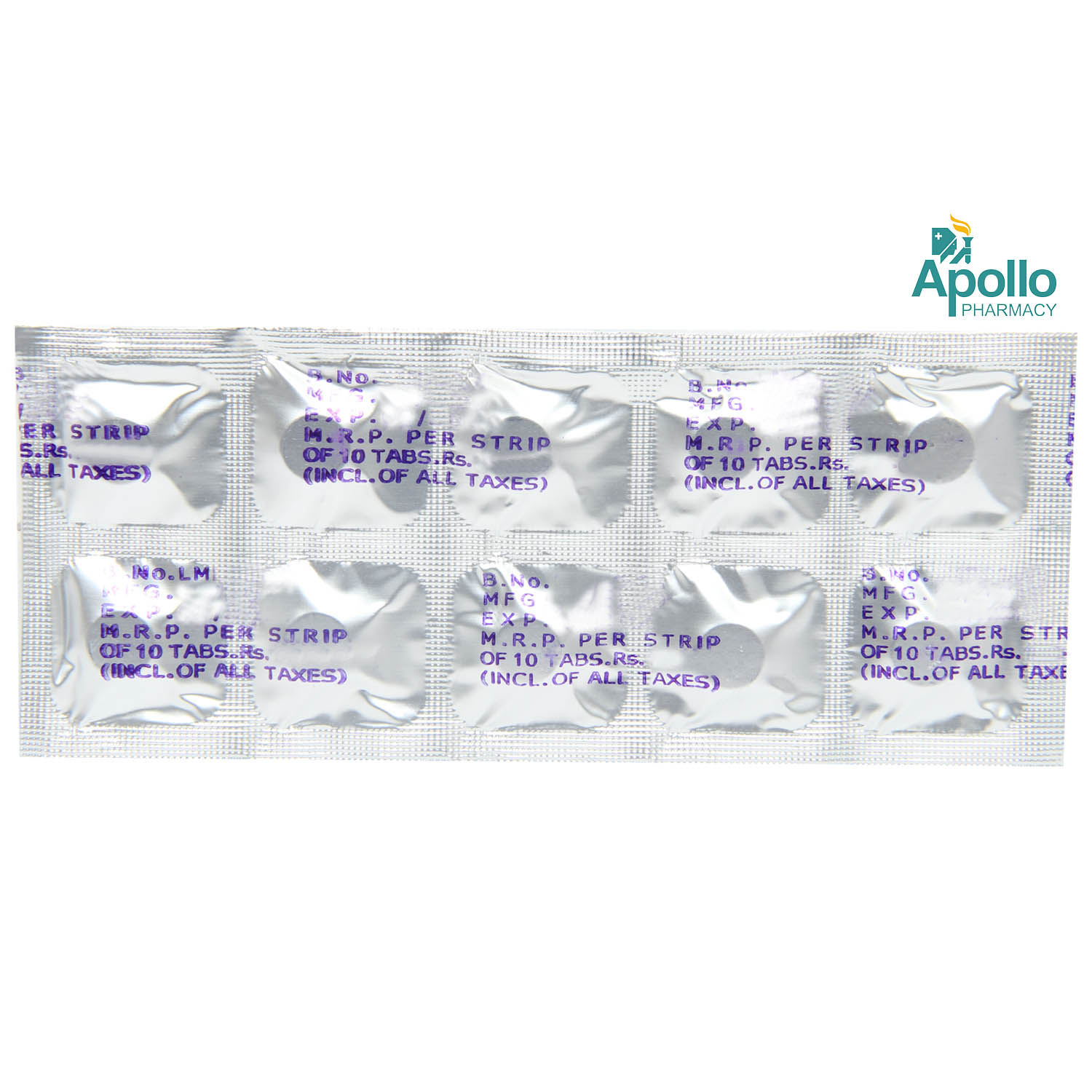
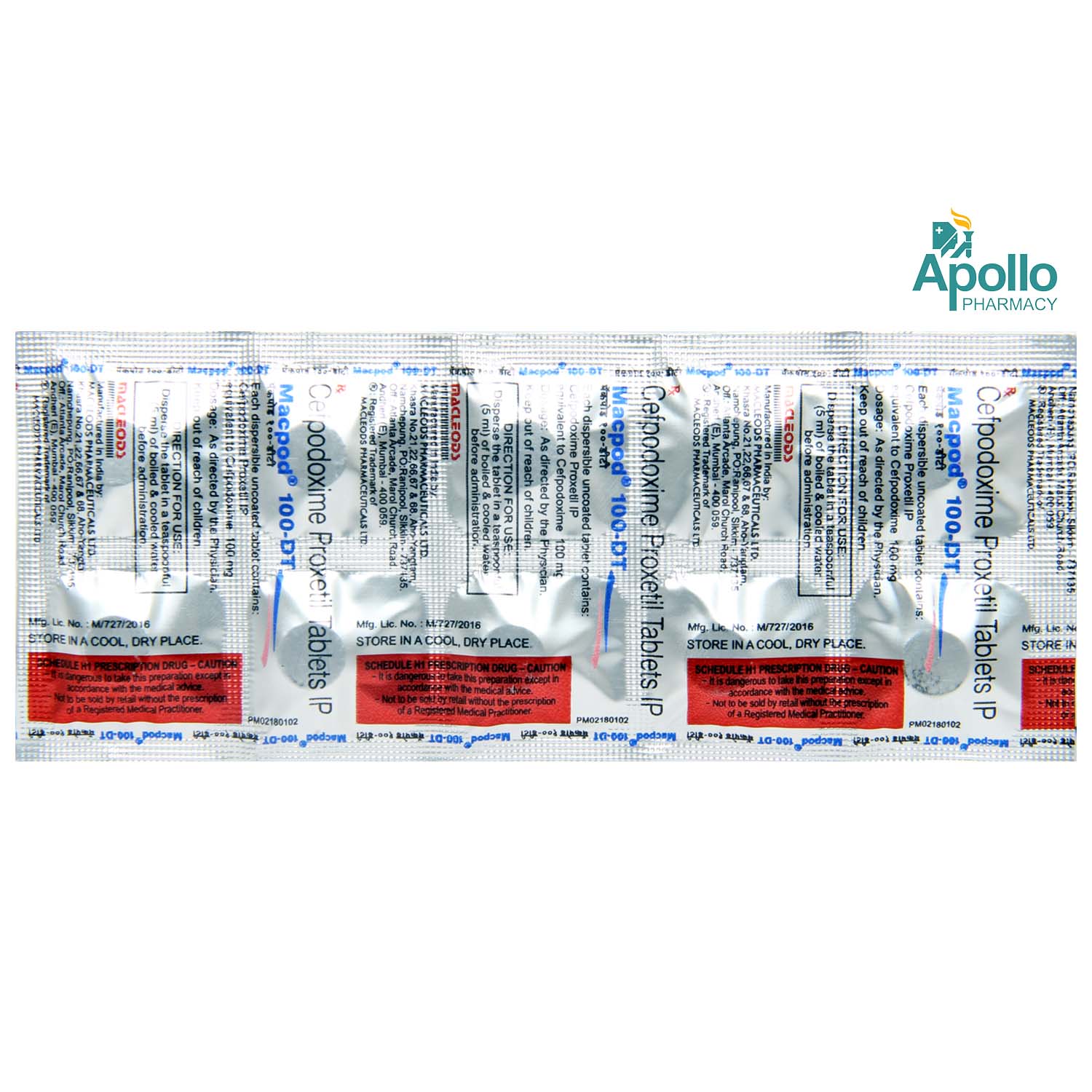



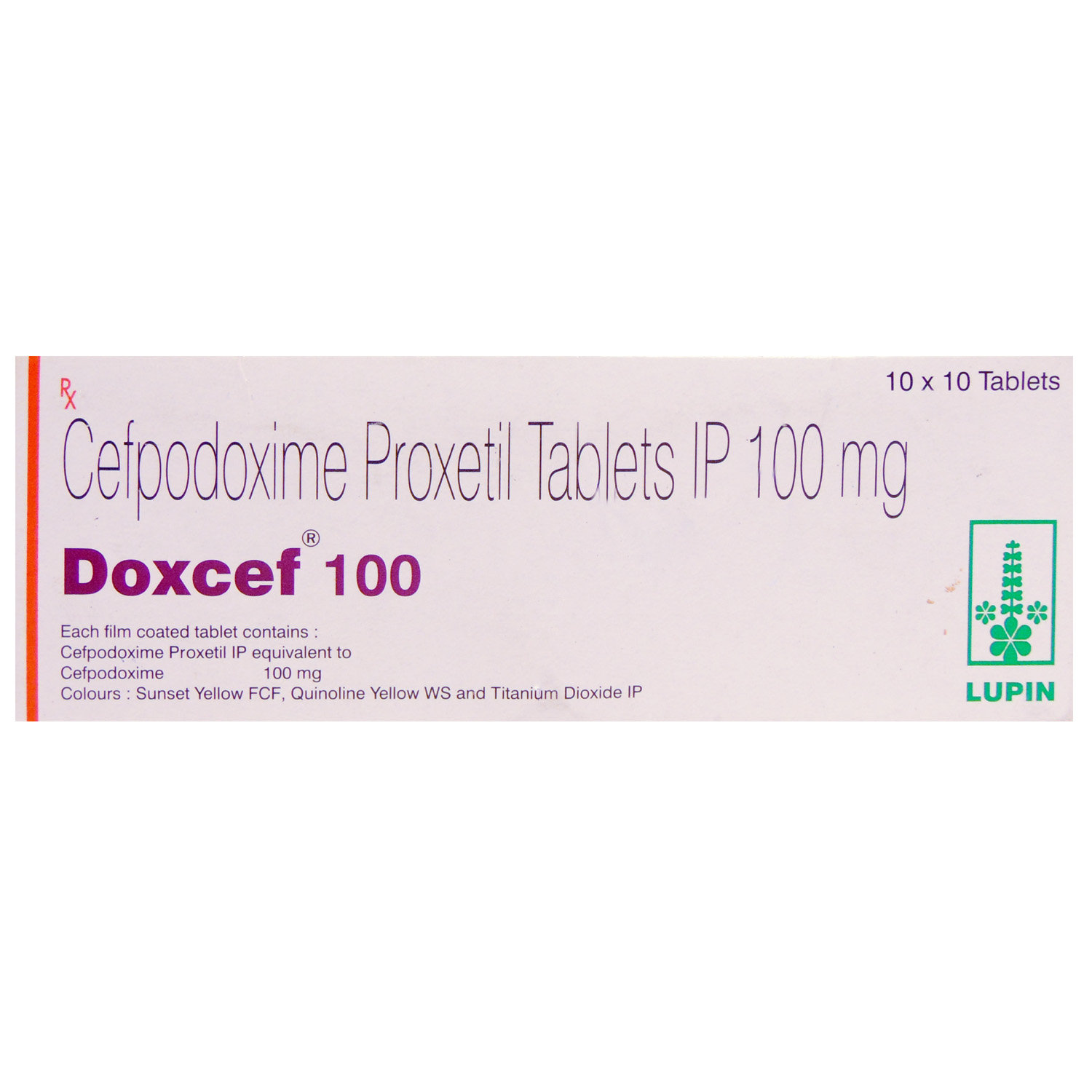
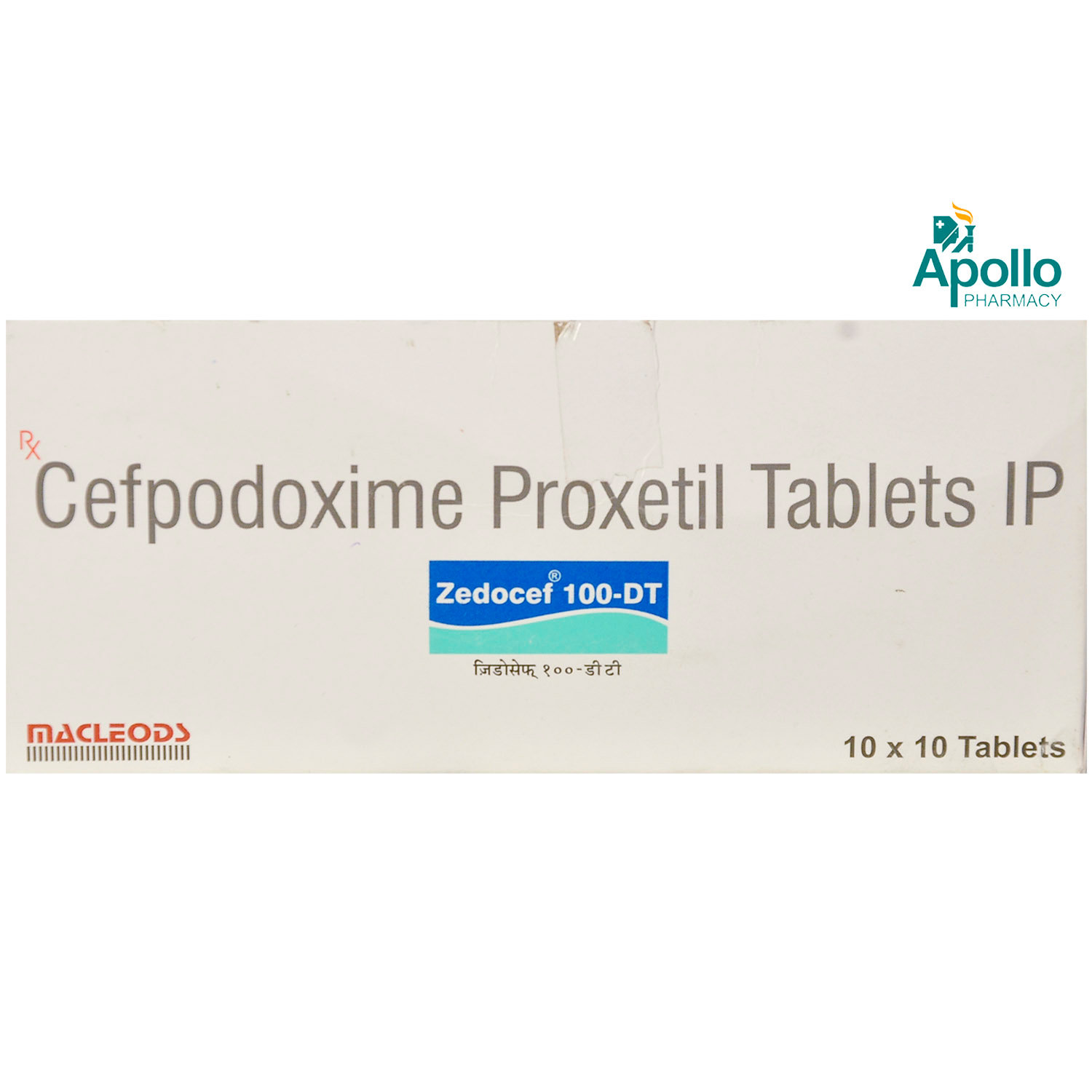
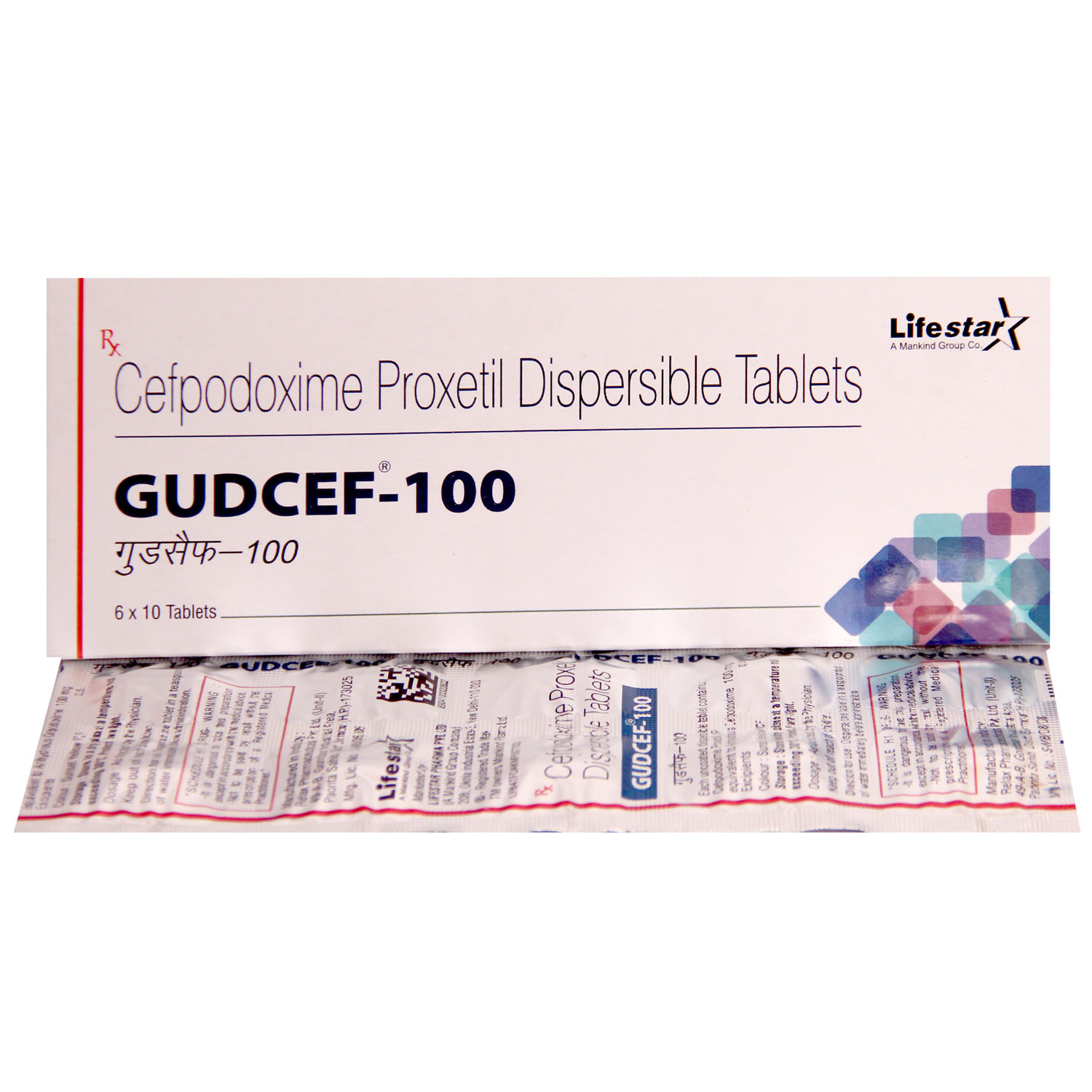
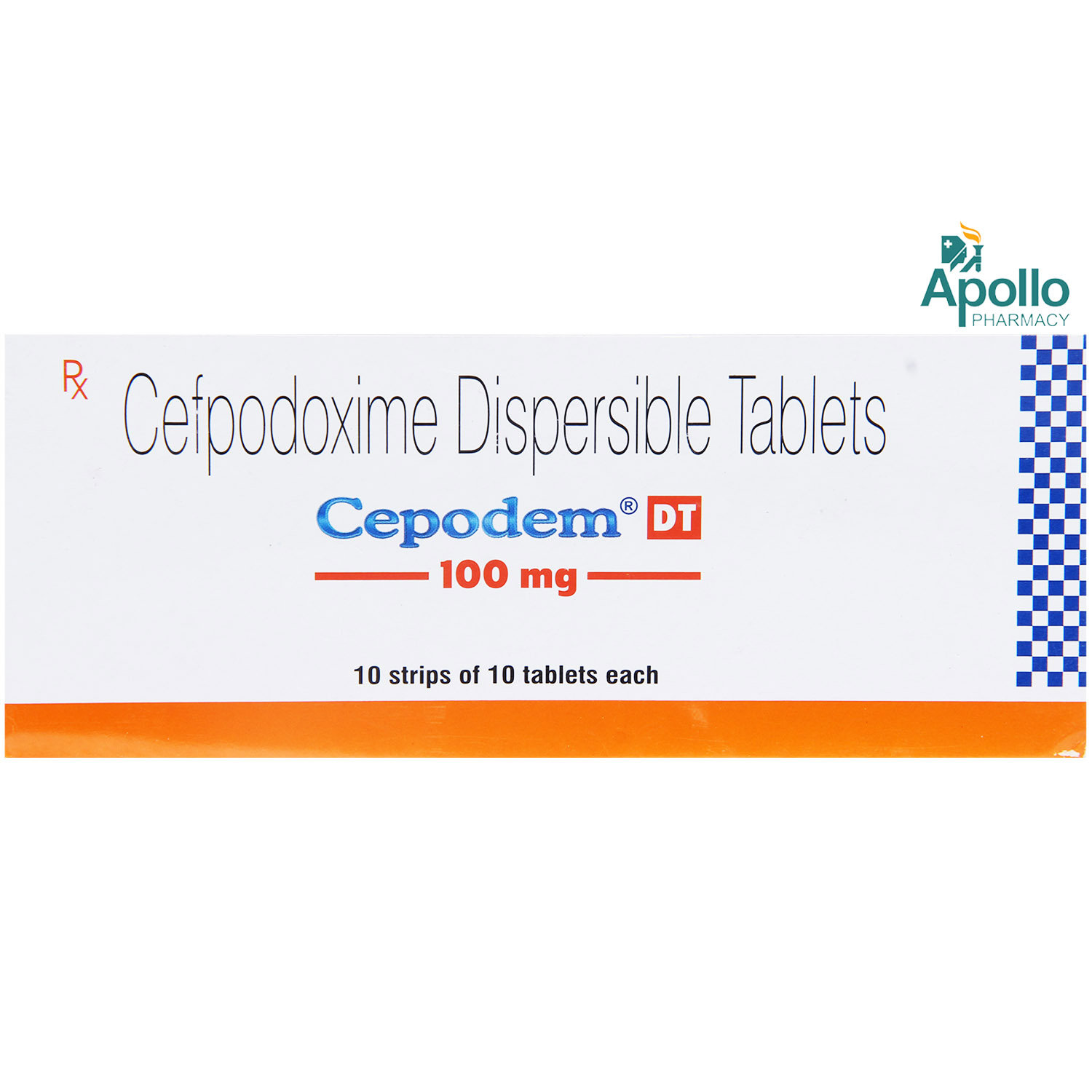
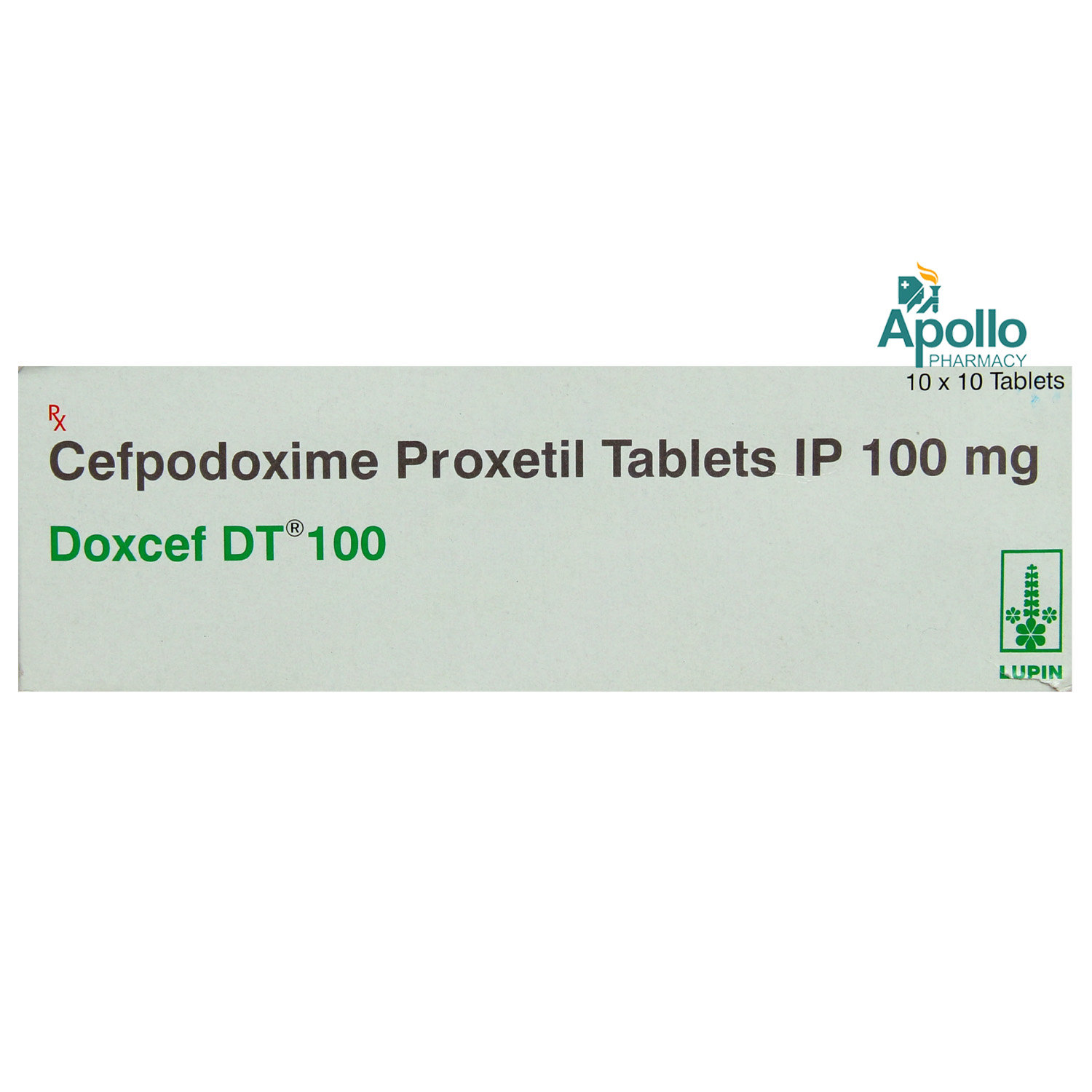

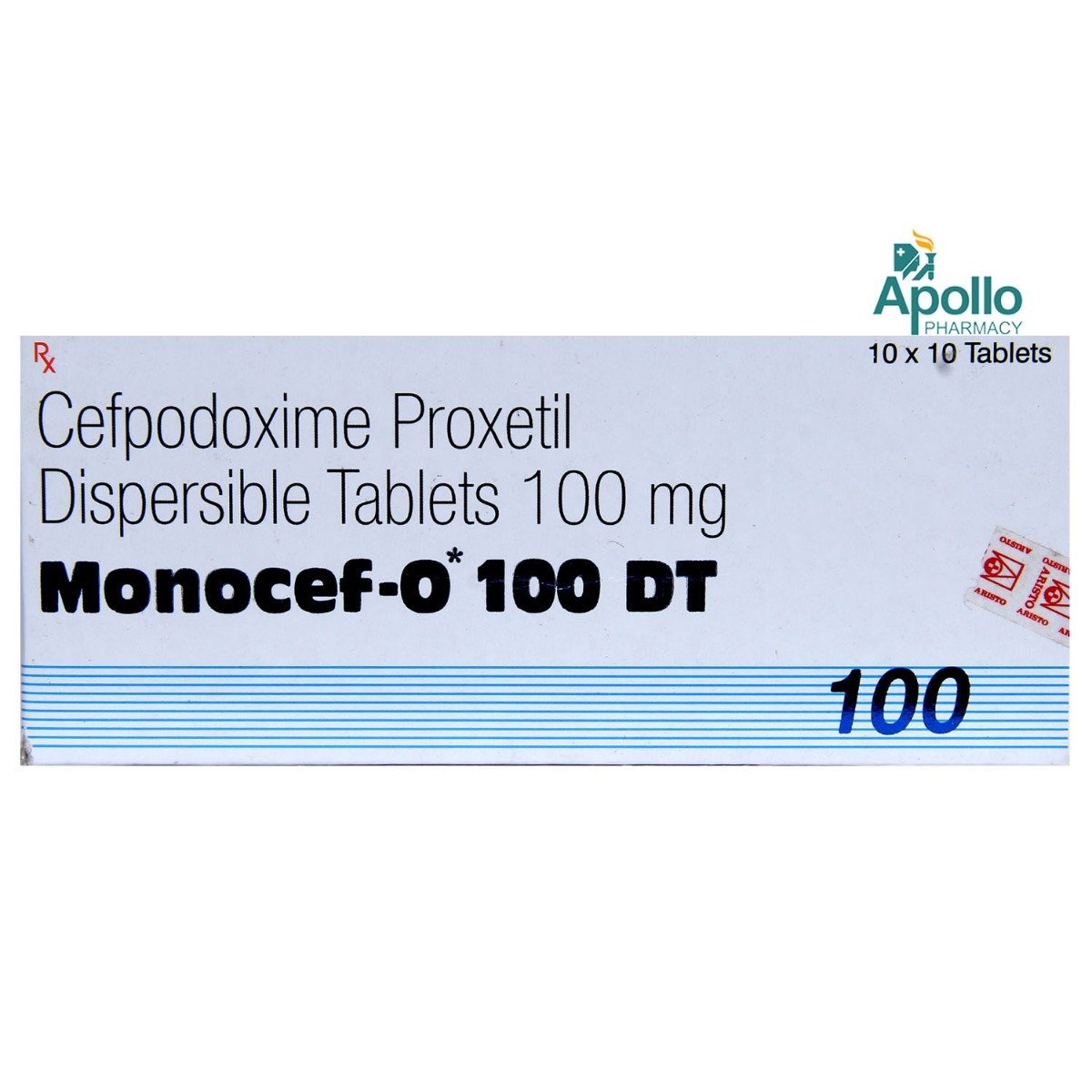
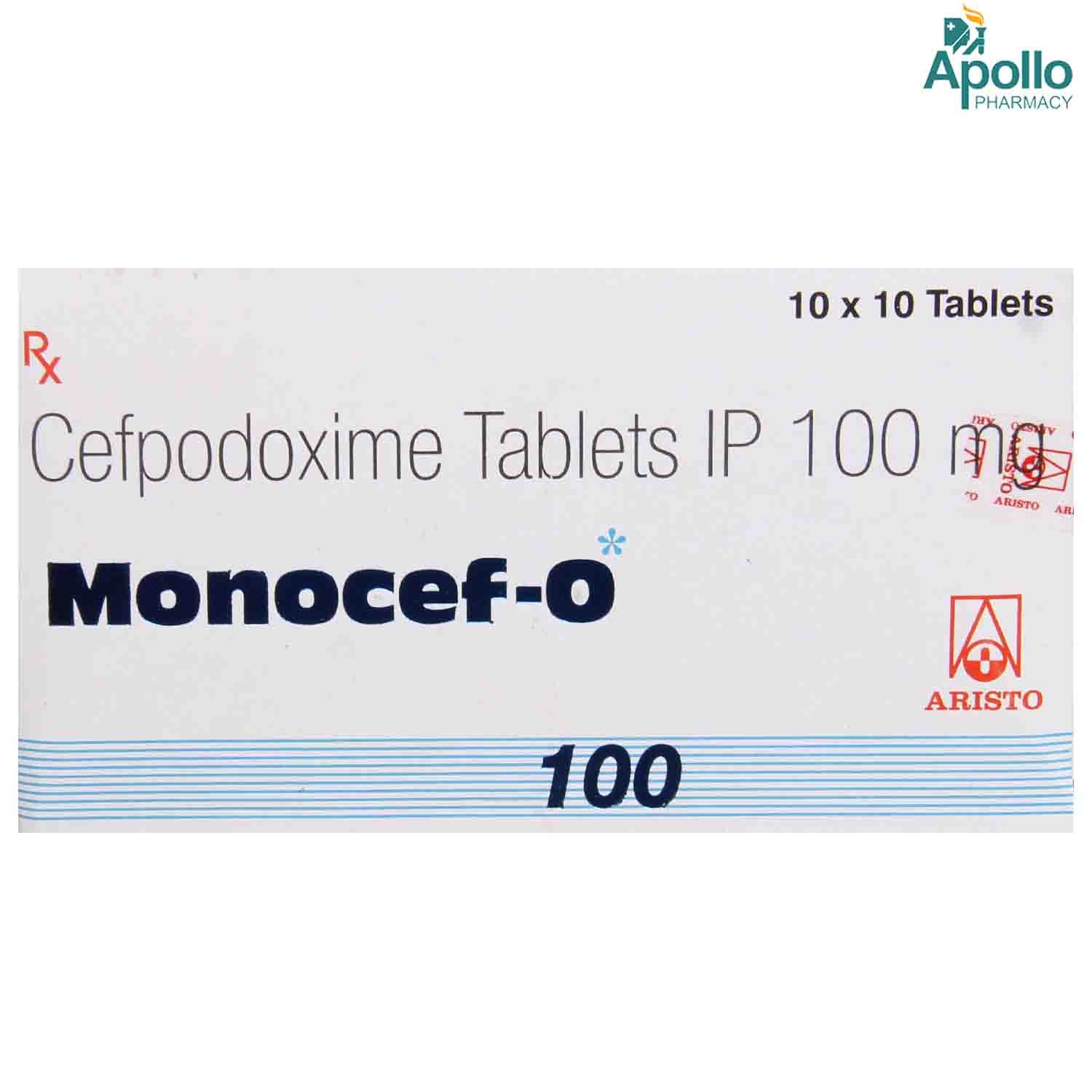
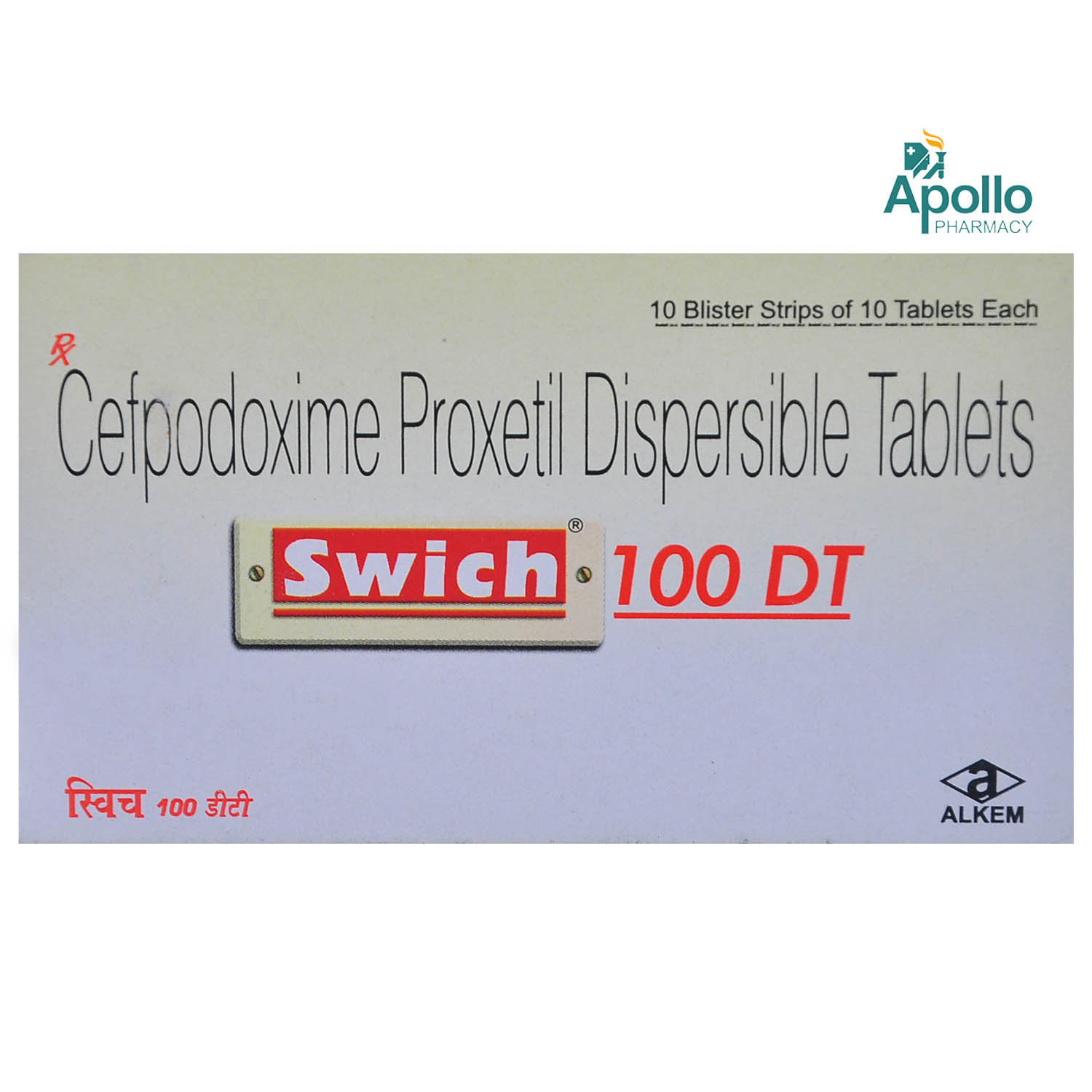

_0.jpg?tr=q-85)

